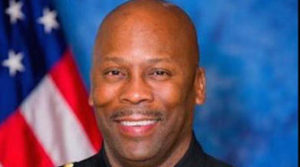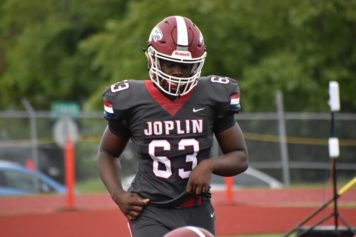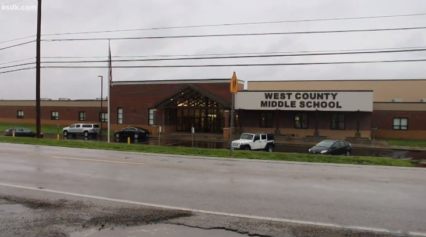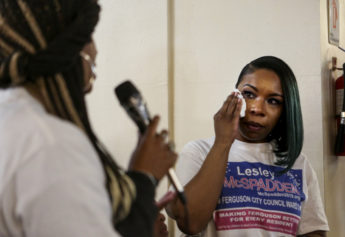
In lieu of these findings, Ferguson recently hired Andre Anderson, a Black police commander from Glendale, Ariz. Anderson was hired from the same municipality as interim city manager Ed Beasley. Beasley is the fourth city manager since the release of the DOJ report, according to The St. Louis Post-Dispatch.
Mayor James Knowles III praised Anderson’s hiring, saying the city needed an outsider’s point of view.
“He is extremely well-qualified,” Knowles said. “He will bring us a fresh perspective coming from outside the St Louis region.” The appointment comes almost a year after Michael Brown’s death.
Anderson is a Army veteran who was a promising boxer before his career was ended by injuries from a car accident, according to The St. Louis Post-Dispatch. He worked as a prison guard before joining the Glendale Police Department. The Arizona Republic said Anderson also mentored and coached at-risk youth at a boxing gym.
In a press conference, Anderson said he wanted to improve training in the Ferguson Police Department by teaching officers about deescalation and bias awareness.
“I am asking the city of Ferguson community members … and leaders if we can set a course in the history books that clearly proves that peace prevails,” Anderson said.
While some may see Anderson’s appointment as progress, Black officers can still fall prey to the same bias and prejudices as white officers. Three of the Baltimore police officers charged in the death of Freddie Gray are Black. In a Vox article, Neil Franklin, a former Baltimore PD officer, said he eventually came to develop prejudices against Black men, even though he is Black.
“When I’d see a young Black male in a particular neighborhood, or his pants were sagging a little bit, or he walked a certain way … my first thoughts were, ‘Oh, I wonder if he’s selling drugs,'” Franklin said.
According to Vox, America’s policing system is inherently racist because cops are often ordered to patrol high-crime Black neighborhoods. And there are incentives for locking up more Black people.
“The problem is police aren’t just deployed in predominantly Black neighborhoods; they’re also encouraged to arrest and ticket as many people as possible while on the job,” said Vox. “Until 2014, a federal grant program financially incentivized local police departments to make as many arrests as possible for drug crimes. Many police departments also use number of arrests as a measure for evaluating individual police officers for raises and promotions. Coupled with deployment in certain areas, these incentives effectively encourage cops to arrest minority residents in large numbers.”
Franklin also pointed out that drug selling and policing habits ensnare more Black people.
“Drug selling and use among whites tend to be more indoors, among friends, word of mouth, and there’s generally no violence associated,” Franklin said. “But overall, the drug selling and dealing in Black communities tend to be in outdoor areas, because of the urban design and the [economic] competition that’s involved in a community with blight, poverty, and a lack of jobs.”


